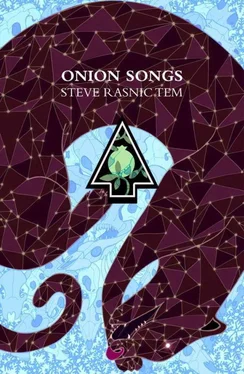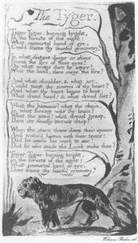He’d never read much fiction—fiction made him feel uncomfortable. He assumed the main characters were more or less masks of the author. Otherwise, how could the author make the story seem real? Fiction, he thought, must be a very strange sort of autobiography, portraying what the author wanted to happen, dreaded might happen, would happen if the author were of another sex, lived in a different country, had different personality traits, took a different path, job, spouse, etc. How did authors feel when their books were misread? What if people liked the character in your book better than who you were on such and such a particular day? He found such layering disturbing, and all too close to the way most people viewed their own lives.
But she’d loved the book and had wanted to finish it, and so, over the next few days, he finished it for her, reading it aloud despite the weaknesses in his speaking voice. He didn’t think he needed to read it aloud so that she might hear it. He’d never believed in such things. Wherever she was he didn’t think she was in any position to physically hear anything. He read it aloud so that the words might live in this home they’d shared all their married life.
Across the street from the art museum there was a park where people came to preach, to give speeches, to perform, or to express themselves in any way desired, as long as they didn’t ask for money or offend common decency. The city government prided itself on its openness and the privilege was well used. Every day there were crowds.
One afternoon he brought a folding table and a battered old suitcase into the park, and out of the suitcase he retrieved a variety of records, which he laid out on the table for display. All of these records had to do with his wife’s life, her long illness, and her death. At one end of the table there were photo albums from her childhood, letters to her parents from camp, a lock of hair from her first haircut. Next to these were laid out their wedding pictures and a variety of snapshots from their marriage: a trip out west, a day at the beach, a picnic in their own front yard when the car wouldn’t start. He and his wife appeared together in all of the shots, and when he examined them he became obsessed with trying to remember what friend, neighbor, or stranger had been pressed into service as photographer. For most of the photographs a clear identification of the person taking the picture was impossible, as any normal person might expect. He understood this. But still it troubled him. Had these record makers been purely accidental, or was it possible that some had hung around hoping to be recruited for just such a purpose? Certainly, if these people hadn’t been there, there might be no record that his long marriage to this wonderful woman had occurred at all.
At the other end of the table he stacked medical records and some pictures from her final years. He had been the photographer for these, and had taken so many portraits of her during this time that choosing a few representative photos had been a difficult task.
Specific facts having to do with her height and weight, the amount of space she occupied, her exact age to the minute at time of death, were prominently displayed. “This is the space and time she occupied,” he repeated again and again when reciting these figures.
There were relatively few visitors to his table that first day, but for those that did come he provided a lengthy narrative concerning his wife, their time together, and her relatively recent death. He was undeterred by the lack of questions—he enjoyed talking about her so much, and it had been such a long time since he’d had the opportunity to talk about her, that the public’s lack of interest wasn’t about to dissuade him. He returned to the park every day that week and delivered essentially the same presentation.
The following week he decided to add a new element to the performance, not only to make it more interesting for himself, but to draw some of the larger crowds available during warmer weather. Despite his lack of formal dance training, despite his singular ineptitude with anything involving coordinated movement, he positioned himself behind the table and began a series of sweeping, yet precise, gestures, which might have been untrained yoga, untrained martial arts, untrained dance, or the unintentional movements of someone afflicted with a nervous disease. During these movements he delivered the same talk he had the week before, except this time there were more questions from the audience.
He grasped, he moved, he took a large inhalation of air. He faltered, he limped, he ached, he winced. He tried to exemplify how it was to be in the world for the number of years he had walked upon this planet. He tried to show the truth of his body and the solitary nature of his existence, and, without using the exact words, just how much he missed her.
He meditated on his hands as they moved through the air. He tried to make the movements of his performance as natural as possible. He attempted to imitate the everyday movements he made as he went through a normal day: cooking, washing hands, taking medications, holding his face as he wept. He imagined his movements as invisible brush strokes. He imagined himself as Clifford Stills, as Jackson Pollock. He imagined himself as some anonymous figure struggling through the wind and driving rain of his very worst day.
He rarely looked at the figures of his audience as he made his performances. It required too much focus just to imitate everyday natural movements for him to give his audience much more than a passing glance. But every so often he became aware of a slight blurring of the edges of the crowd. Now and then he became aware of the forgotten figures coming out of hiding, their vague outlines filling with heat and color to become targets for his eyes.
His wife had used a dressmaker to make alterations in her careful purchases, so it wasn’t too much trouble to ask the woman to make several colored bodysuits fitted to his measurements. The only difficult part of the process was standing before her in T-shirt and shorts so that she could take these exacting measurements. Like a small boy he kept his eyes tightly shut until it was over.
The next week he appeared in the park in a variegated green and brown bodysuit. He thought he looked like a hole in the fabric of the world. He noticed that if he moved his body in certain ways, and at certain speeds, it was difficult for him to find the edge of himself. His sense of a personal outline faded in and out with his every movement, as if made from radio signals from an unreliable transmitter.
He attempted to harness unconscious habits into his performance: nose pickings, butt scratching, spitting. He was aware that some people were repulsed, and left at the first appearance of some unpleasant bit of personal business. Although it meant the loss of some verisimilitude, he quickly returned to a semblance of politeness.
The following week he added photo manipulation to his performance. He had taken some of those precious photographs of him and his wife together, copied them, and made crude alterations in the copies. In some of the images he had altered her, or scratched her out, leaving a shapeless white defect in her place. In others he had simply folded over the photo in order to essentially erase her from the image entirely. He discovered that the altered photographs made him look ridiculous. He became a mad eccentric holding hands with nothing, speaking to nothing, kissing the nothing that is not there. The outlines in the crowd wavered as their faces began to drain of all color.
As he moved inside his empty body suit he thought he was beginning to resemble them: the figures that were not there. Some days his arms moved so quickly he lost track and could not find them. If he closed his eyes even once he forgot he was even there.
Читать дальше












